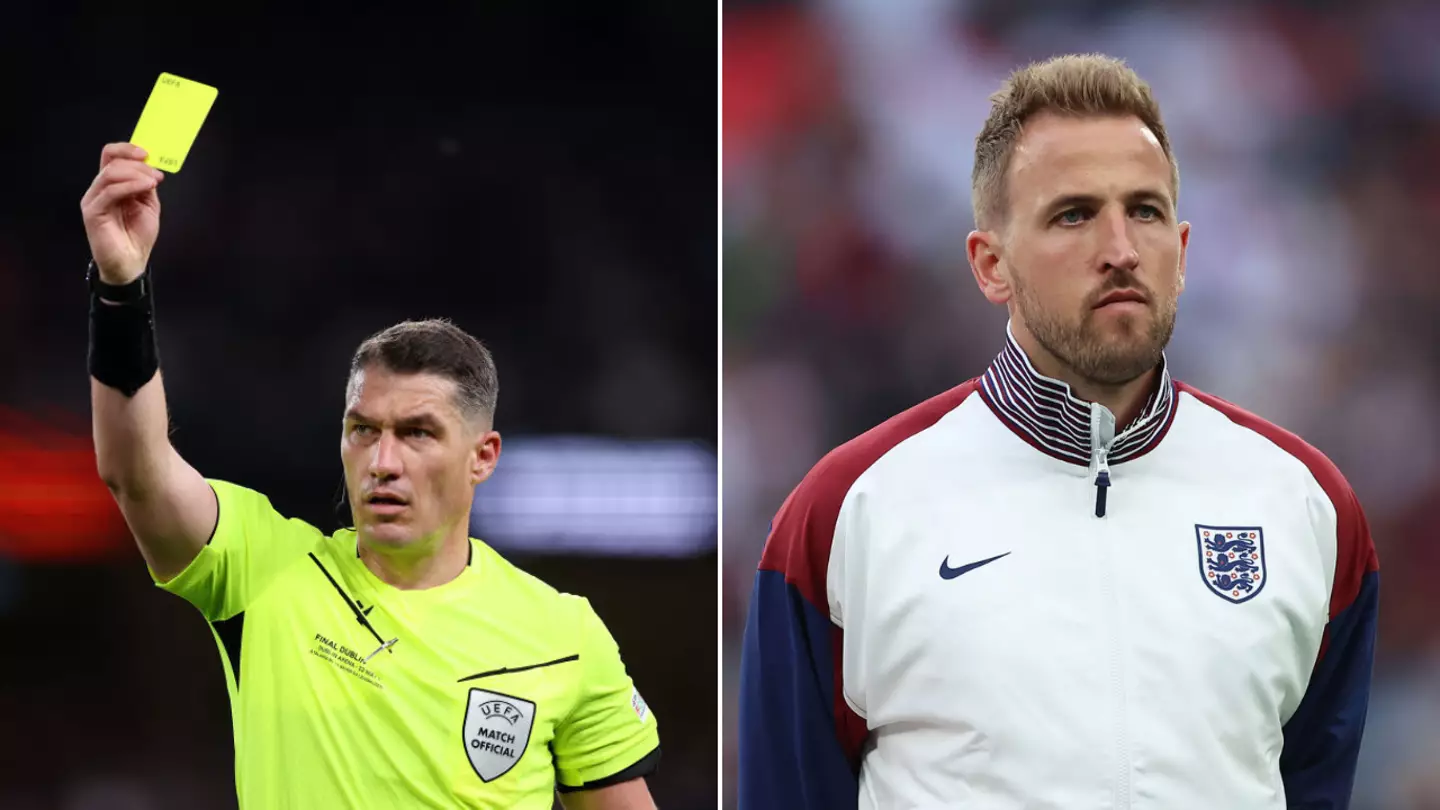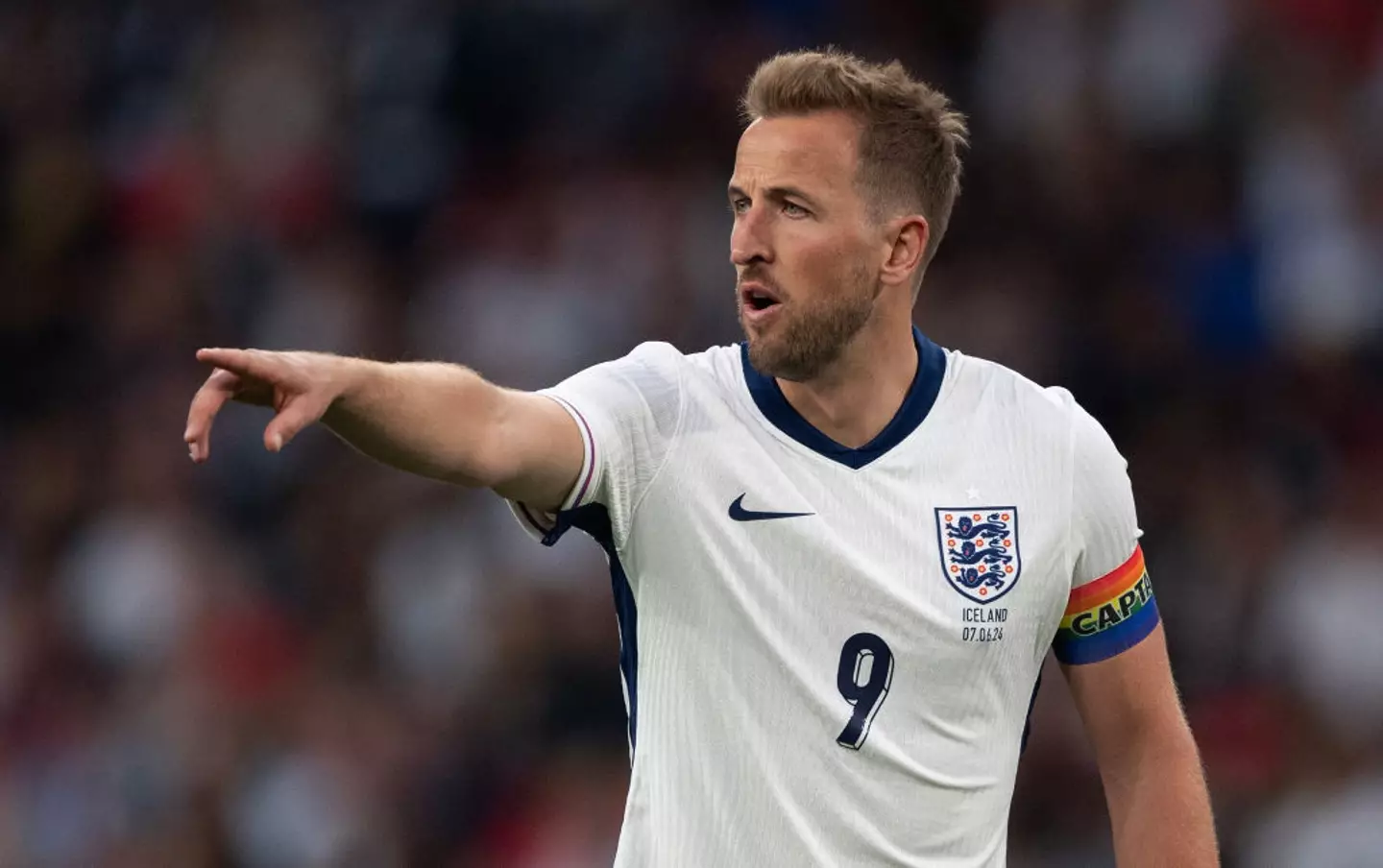A change of rules will force England players to be more respectful when playing at Euro 2024 or they could risk being sent off.
England head into the tournament as favourites to lift the Euros trophy, avenging their penalty shootout loss to Italy in the Euro 2020 final.
For their first game, the Three Lions travel to Arena AufSchalke, home of second-tier German side Schalke, to face Serbia on Sunday at 8pm BST.
Denmark and Slovenia make up the rest of Group C, with the pair facing off three hours before England.
But all four teams will have to be careful in their opening fixture, as a new rule has been introduced for the tournament.
Starting with Friday night’s opening fixture between Germany and Scotland, only national captains will be permitted to speak to referees.
Should any other player approach the referee to complain, they will be instantly shown a yellow card.
Referees have been told to be particularly harsh if they are mobbed by a team when trying to make a decision as this could disrupt the direct communication with their officiating team and delay decision-making.
As part of the change, referees are expected to explain key decisions to captains in greater detail, leaving the responsibility with the captain to explain to his team if they are complaining.
As captain, only Harry Kane will be permitted to speak to the referee during England matches. (Image: Getty) In an open letter to fans, UEFA’s managing director of refereeing, Roberto Rosetti explained the decision.
"Being a referee in the modern game is very difficult," he said.
"The official in the middle takes between 200 to 250 decisions per match - that is one every 22 seconds - in difficult and sometimes controversial situations, under huge pressure, with each of them scrutinised and re-watched from multiple different angles by fans and pundits alike.
"Explaining a decision with up to 22 players mobbing you is impossible for a referee. It can lead to a breakdown in communication, with the beautiful game turning very ugly very quickly.
"Importantly, we want only the captain from the team who wishes to discuss a decision to be able to approach the referee."
The only condition where another player can approach the referee is if a team’s captain is their goalkeeper.
In this instance, an outfield player will be nominated to communicate with the referee throughout the game.

 Ben McCrum
Ben McCrum